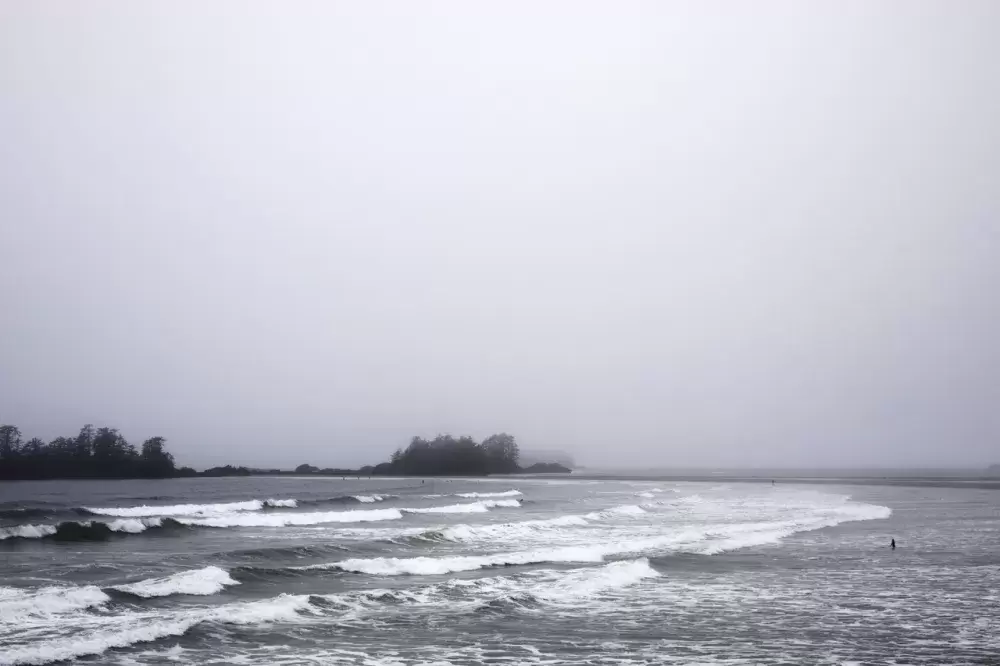A warning has been issued by Environment Canada, as “storm” force winds of 48 to 63 knots are expected to blow through the west coast of Vancouver Island.
It comes as no surprise to Dianne Ignace, who has been moving all of her belongings off the beach at Usk-tua to the 14-foot tideline for the past several weeks.
“We usually don’t get tides more than 13.1-feet or 13.5-feet at the max during the winter,” she said. “But when there’s a real big storm – and we’re expecting big ones – we try for the 14-foot tideline.”
According to a recent report from BC Hydro, there has been a 117 per cent increase in storms that it has responded to over the past several years; rising from 52 in 2014 to an average of 113 over the past three years.
The report, titled Stocked up, but unprepared: How COVID-19 preparation has created a false sense of storm season security, found that nearly 20 per cent of British Columbians think that they are more prepared for winter storms because of COVID-19. But the study also points out that over half of British Columbians do not have an emergency preparedness kit.
The BC Hydro document states that 44 per cent of those surveyed “indicated they have stocked up on household supplies for the pandemic, leading to a sense of preparedness. However, many of the supplies that British Columbians have stocked up on cannot replace the contents of a well-stocked emergency kit, which should include a first aid kit, bottled water, non-perishable food, a flashlight, extra batteries, and an emergency plan.”
During the last stretches of dry weather, Ignace’s son, Jeffery, was busy cutting firewood from a four-foot diameter log that was sitting on the beach in front of their home in the Hesquiaht Harbour.
“We’d love to get all of that [wood] up and off the beach before the 13-foot tides,” said Ignace. “Logs can go whizzing by here 30 and 40 miles an hour if it’s stormy during those tides. It is scary – very. Sometimes it gets pretty nasty.”
As the days become shorter and the winds less predictable, there are fewer opportunities to leave the remote peninsula safely.
Keeping a close watch on the weather, Ignace recently timed her last journey to Port Alberni ahead of the storm. Stocking up on canned goods, groceries and diesel, the haul will carry her through the next three months.
The Ignaces are not alone in their efforts to winterize their property.
Elmer Frank, Tla-o-qui-aht Emergency Operations Centre chair, said that the nation is sending out notices to its members about possible power outages.
Beyond that, “we’re doing a lot of prayer – a lot of sun dances,” he joked.
For the Hesquiaht First Nation members living at Hot Springs Cove, it is business as usual.
“There’s nothing really extra that’s done in the wintertime,” said Hesquiaht’s elected chief Joshua Charleson. “Other than people stocking up a little bit more on groceries when they go to town, it’s just getting firewood ready and cleaning chimneys.”
In order to prepare for this year’s storm season, BC Hydro is recommending having a contingency plan with your household, as going to public spaces during a long-term outage will be more difficult this year.







